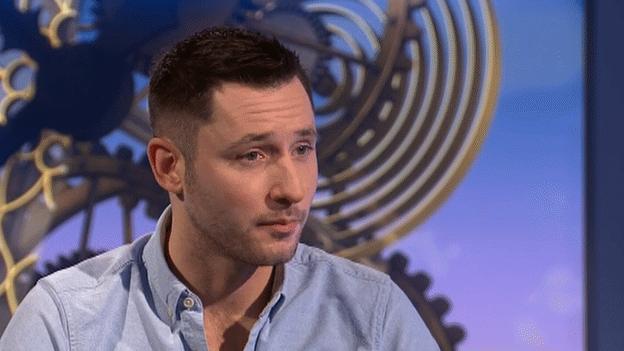The fight of Gordon Aikman's life
- Published
Gordon Aikman talks about his campaign for more support to tackle motor neurone disease.
They run, jump and hurl themselves through the air.
Mostly they land upright with a reassuring thud on the crash mats.
There are dozens of children taking part. Kirkcaldy gymnastics club is noisy and life-affirming. It's a strange place to find a dying man.
Gordon Aikman has motor neurone disease (MND). He was diagnosed at 29. This cruel condition is shutting down his body. There's neither a cure nor an effective treatment.
But Gordon refuses to give in without a fight. He's raising money for research and campaigning for better patient care.
His old gymnastics club is donating £700. Gordon competed for and coached at Kirkcaldy.
It's January 2015 - seven months after doctors gave him the devastating diagnosis.
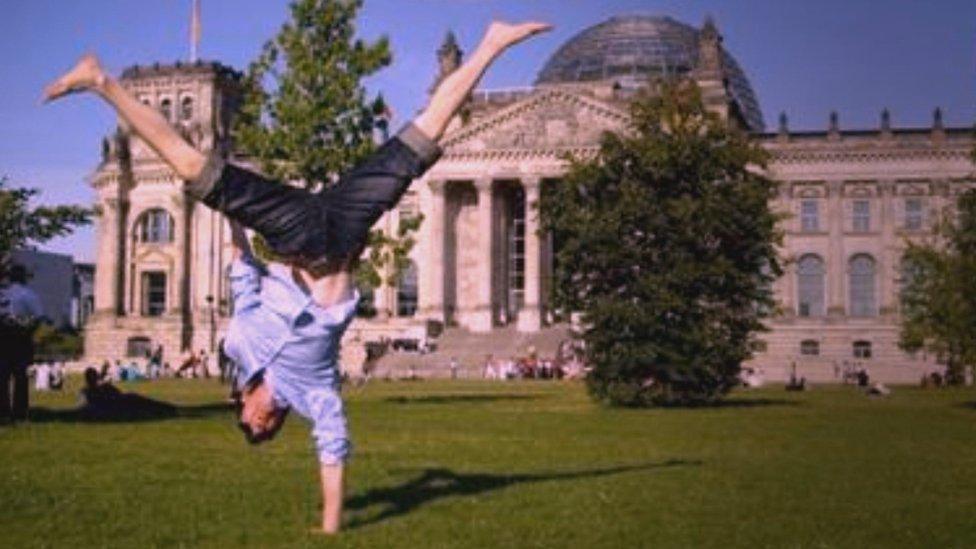
Mr Aikman has had to leave his gymnastic days behind him
He can still walk with a crutch and he drove himself here from Edinburgh.
But his days as a gymnast are behind him.
"It's difficult" he says. "I've looked back at pictures of me doing handstands and cartwheels and I love exercise and sport.
"And I still dream of being able to run but I can barely walk, so it's a dream I'm not going to realise again."
Throughout 2015, Gordon's physical condition deteriorates.
He has to give up driving. An electric wheelchair replaces his crutch. Carers help him feed, wash and dress.
And there's worse to come.
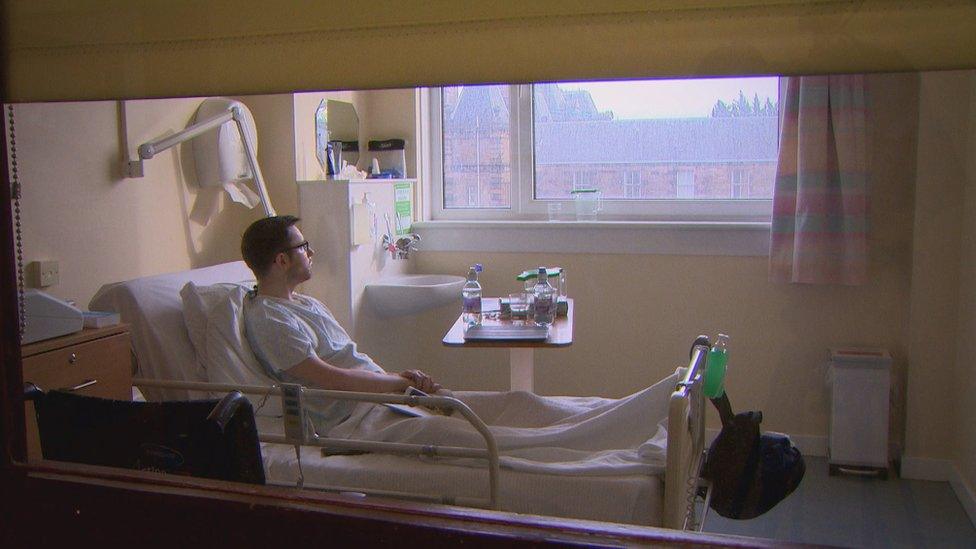
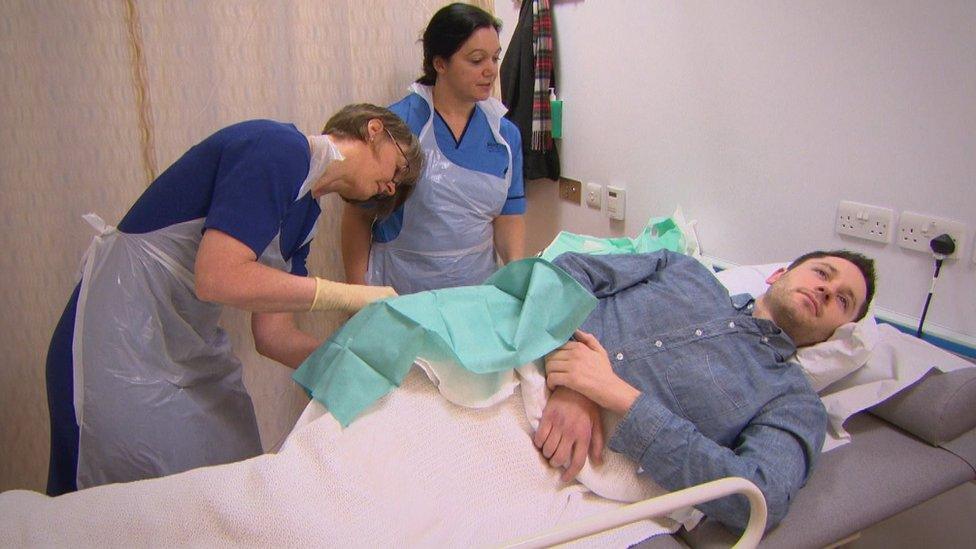
There is no cure for Mr Aikman's condition but he has donated body tissue for medical research into MND
"The thing that I'm most scared of is losing my voice," he says.
"I think that would be incredibly difficult. So, not only are you paralysed, unable to move, you're then suddenly not able to communicate and speak."
As an insurance policy, Gordon banks speech samples with an Edinburgh university team who are developing a voice synthesizer.
He also secures new rights, for all those who lose their speech, to access voice technology.
As Gordon's body weakens, his campaign - Gordon's Fightback, external - is going from strength to strength.
It's on course to raise £500,000 for MND research.
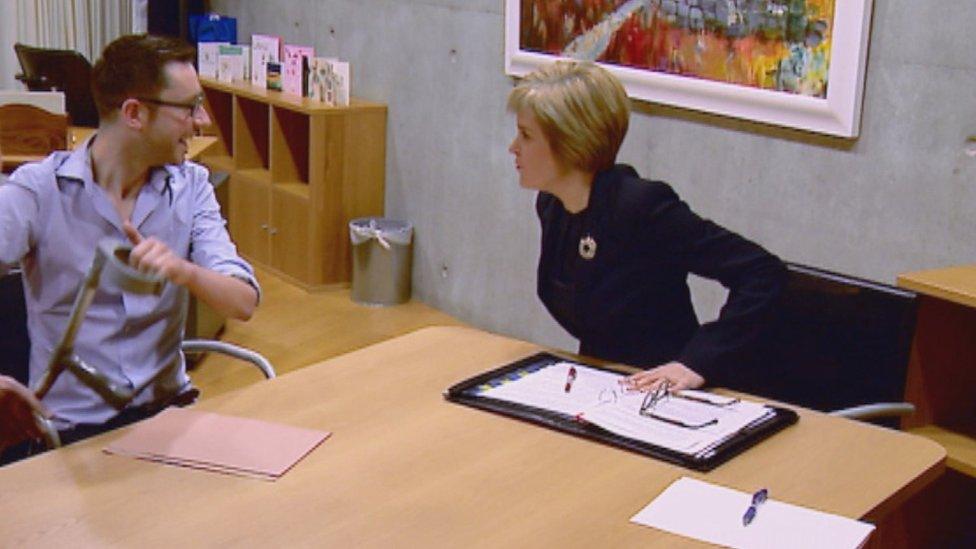
Mr Aikman's campaign has led to meetings with senior politicians such as First Minister Nicola Sturgeon
It has convinced the Scottish government that the NHS, rather than charity, should fund a team of specialist MND nurses and double their number to 12.
Gordon's inspiring example has been widely recognised.
His awards include the British Empire Medal, an honorary doctorate from Edinburgh University and the Public Campaigner of the Year title at the Scottish Politician of the Year Awards.
Yet Gordon is modest about his achievements.
"It's what I could do," he says. "It's what I could give back. It's how I could make a difference".
Gordon Aikman's story is told in a new BBC television documentary. The Fight of Gordon's Life will be broadcast on BBC1 Scotland at 20:30 on Monday.
- Published7 April 2015
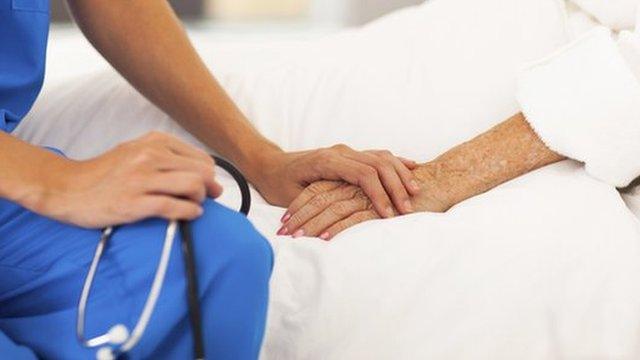
- Published7 January 2015

- Published7 December 2014
